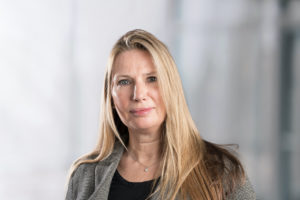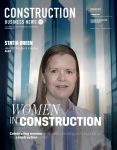Savills: Human-Centric Office Designs are important to attract and retain talent going forward
Savills, the leading global real estate advisors, hosted a webinar to highlight the most recent trends in the workplace across the region. The panel titled ‘How will COVID-19 impact how and where we work?’ looked at whether the residual effects of Covid-19 will fundamentally change how we work. To discuss the issue, the panel included regional real estate experts including Paula Walshe, Head of International Corporate Services at Savills, Nicky Wightman, Director Emerging Trends at Savills, Ben McGregor, Investment Director at ICD Brookfield, Silke Winter – Legal Strategy and Governance at Boehringer Ingelheim and Ketan Trehan, Associate Sales Head – Dubai at The Executive Centre. The session was moderated by Richard Paul, Head of Professional Services and Consultancy, at Savills who discussed with the panellists the key factors and trends emerging following the global pandemic.
To introduce the debate, Richard Paul explained how the concept of office space has undergone significant changes over the past few decades. It has evolved from the ‘cubical’ set-up, to ‘open plan’ desk space, into the more ‘flexible’ and ‘co-working’ environment. This has been slowly driven by changing business requirements, as well as in part, evolving employee needs and demands. However, Paul highlighted that the onset of the COVID-19 pandemic has led to a dramatic shift in our working patterns, as ‘work’ abruptly moved from traditional office environments, to a home setting. For some companies, the transition was seamless, partly due to the nature of their work and due to prior investments into technologies that promoted and supported remote working.
Following this introduction, the panellists delved deeply into the emerging trends to understand from multinational companies how their real estate strategy is likely to change going forward. The webinar covered how landlords have responded to these changing dynamics to ensure their developments stay relevant and competitive.

Photo: Richard Paul, Head of Professional Services and Strategic Consultancy at Savills Middle East
Richard Paul, Head of Professional Services and Strategic Consultancy at Savills Middle East said: “In light of the social and technological shift, the concept of the office building and corporate headquarters as we once knew it, is being appraised. According to the recent, EMEA wide, FiT survey, from Savills, during the first wave of the lockdown, 89% of respondents believe that physical office space will remain a necessity for companies to operate successfully. Our findings would strongly suggest that the office won’t disappear, but it will likely change. A change that will look to instil a work-life balance, with a renewed focus on physical and mental health as well as productivity and efficiency.”

Photo: Paula Walshe, Head of International Corporate Services at Savills
Paula Walshe, Head of International Corporate Services at Savills Said: “We have seen a continuous commitment to office space from our clients over the last few months with several notable long-term renewal and regear projects on large office spaces by Corporate occupiers in Dubai. How they use their space in future may change and flexible working practices will certainly become part of the working landscape however our clients recognise that Office space is vital for company culture, collaboration and creativity.”
Ketan Trehan, Associate Sales Head – Dubai at The Executive Centre said: “Every market and sector is different, however a key trend we are seeing globally is that flexibility is important, now more than ever. Companies are demanding shorter and more flexible lease options. Being able to mitigate risks in the short and medium term, increase efficiencies and the ability to adapt quickly to the changing environment is critical to every business. Strategic location, amenities and the quality of the development play a part, but now employee well-being, collaboration spaces and technology are playing an ever increasing role in decision making.”






















 Kuwaiti developer URC signs with Ahmadiah Contracting for the Commercial District development at Hessah AlMubarak
Kuwaiti developer URC signs with Ahmadiah Contracting for the Commercial District development at Hessah AlMubarak